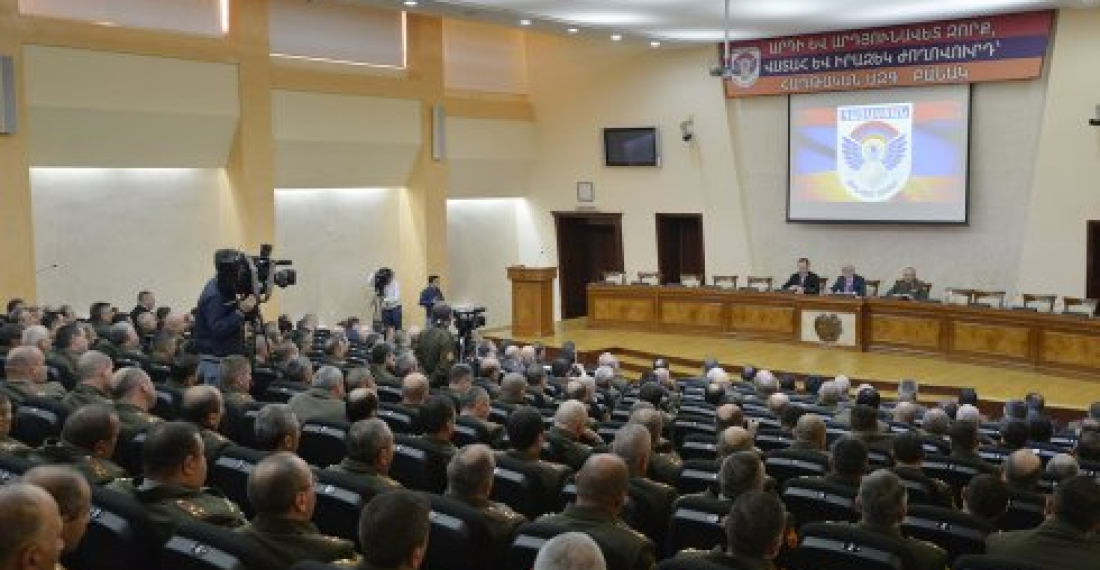Armenian President Serzh Sargsyan told the leadership of the Armenian armed forces on Monday (19 March) that he had no good news to share with them on the current state of negotiations on the Nagorno-Karabakh conflict. The president added that regardless of this "we will continue the negotiations and our partnership with the OSCE Minsk Group Co-Chairs, since they are authorized on the part of the international community to mediate between the conflicting sides and assist in the development of a peaceful settlement of the issue. However, the primary responsibility is on the conflicting parties, and we have always realized our share of responsibility." The president was speaking at what was described as an "operative meeting" of the leadership of the Armenian Armed Forces.
President Sargsyan said that the "army has been and will be a key factor in the settlement of the Nagorno-Karabakh conflict. Amid continued threats coming from Baku, the armed forces stand for our pillars and cuffs. The April 2016 hostilities were a large-scale attempt to check the balance of power, which proved to be a failure. In our current situation, our task is to maintain the positioning configurations. Moreover, we must work consistently and be always ready to counteract the adversary's attempts to change the balance of power.
The Armenian president added
"We have repeatedly demonstrated and, if necessary, will again demonstrate that the attempts to resolve the Nagorno-Karabakh problem through military means are doomed to failure: the more painful and accurate is our response, the sooner they will realize it. The main goal of our consistent work is to strengthen that consciousness in the opponent."
You can read the full text of the speech of the Armenian president on the website of the Armenian Presidency here
source: commonspace.eu with president.am







